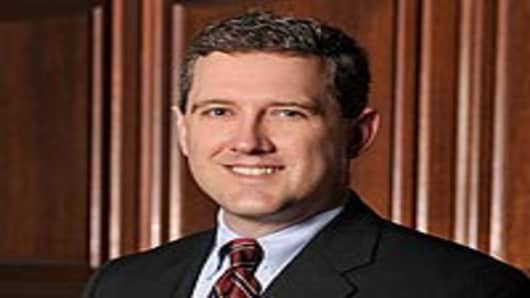A third round of Treasurys purchase is not necessary unless the U.S. economy deteriorates further, according to James Bullard, president of St Louis Federal Reserve Bank.
Recent economic data have signaled that the U.S. economy is doing better than economists think, Bullard told CNBC Tuesday, and a third round of bond buying by the Fed - in a program known as quantitative easing , or QE - is not needed.
"I think QE3 would require the economy to deteriorate somewhat from where it is right now," Bullard said. "The basic story on the U.S. economy is that we've had good news over the last six months or so, especially compared to the recession scenario that was being painted in the August-September time period of last year."
The Fed has bought $2.3 trillion in bonds and kept rates near zero since December 2008 to stimulate growth. At its March 13 meeting, the Fed reiterated that it would keep ratesnear zero through late 2014 because of the lackluster economy.
A third round of bond buying may be in the works, according to Bill Gross, manager of the world's largest bond fund at PIMCO. He posted on Twitter Sunday that he expects the Fed to signal during its April meeting that more stimulus will be needed for the U.S. economy.
Ultra-Loose Policy is 'Detrimental'
Federal Reserve Chairman Bernanke said Monday that the U.S. job market remains weak despite three months of hiring and that the Fed's existing policies will help boost growth. More robust consumer spending and business demand will be needed for further job gains, Bernanke said during a speech at the National Association for Business Economics spring conference in Arlington, Virginia.
Bullard says he would like to see the Federal Reserve resume a "more normal monetary policy as soon as possible" because it has detrimental effects on the economy.
"It (the policy) punishes savers, for instance, in the economy, it does send a pessimistic signal about the economy and I think that can hurt investment prospects in the U.S.," Bullard said. "But we need to provide the right amount of support for the recovery as we do that, and we need to keep an eye on inflation."
Inflation ran at 2.9 percent in February, with the consumer-price index hitting 0.4 percent, the U.S. Department of Labor said earlier this month.
Correction: In an earlier version of the story, we incorrectly quoted Bullard as saying that further monetary injections into the U.S. economy are a big mistake that could cause inflation and slow economic activity. Those were, in fact, comments made by another guest during the on-air interview.


